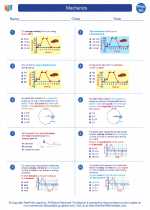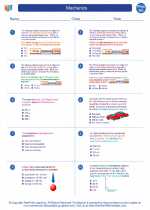Nuclear Energy
Nuclear energy is the energy that holds together the nucleus of an atom. There are two processes by which nuclear energy is released: nuclear fission and nuclear fusion.
Nuclear Fission
Nuclear fission is the process of splitting the nucleus of an atom into two smaller nuclei. This process releases a large amount of energy. Nuclear power plants use fission of uranium-235 to produce energy.
Nuclear Fusion
Nuclear fusion is the process of combining the nuclei of two atoms to form a heavier nucleus. This process also releases a large amount of energy. Fusion is the process that powers the sun and other stars, but it has not yet been effectively harnessed for energy production on Earth.
Advantages of Nuclear Energy
- Low Greenhouse Gas Emissions: Nuclear power plants produce very low amounts of greenhouse gases compared to fossil fuel plants.
- High Energy Density: Nuclear energy has a very high energy density, meaning that a small amount of nuclear fuel can produce a large amount of energy.
- Reliable Power Source: Nuclear power plants can produce a continuous and reliable source of energy, unlike some renewable energy sources.
Disadvantages of Nuclear Energy
- Nuclear Waste: The spent fuel from nuclear reactors is highly radioactive and needs to be carefully stored for thousands of years.
- Potential for Accidents: Nuclear accidents, such as the Chernobyl and Fukushima disasters, can have catastrophic consequences.
- High Initial Cost: Building nuclear power plants requires a significant initial investment.
Study Guide
Key Concepts
- What is nuclear energy?
- What are the processes by which nuclear energy is released?
- What are the advantages and disadvantages of nuclear energy?
Key Terms
- Nuclear fission
- Nuclear fusion
- Radioactive waste
- Nuclear reactor
Practice Questions
- Describe the process of nuclear fission and its role in nuclear power plants.
- What are the main advantages and disadvantages of nuclear energy?
- Explain the difference between nuclear fission and nuclear fusion.
◂Physics Worksheets and Study Guides High School. Mechanics
The resources above cover the following skills:
Core Ideas for Knowing Science
Physical Science
Changing the movement of an object requires a net force to be acting on it.



